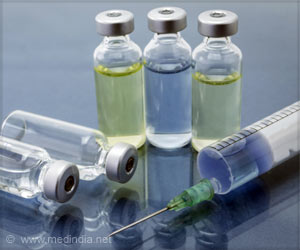Recent research gives that moderate exercise can reverse some of the muscular damage caused by heart failure.
Recent research gives that moderate exercise can reverse some of the muscular damage caused by heart failure.
Regular endurance exercise promotes the growth of new cells and blood vessels in muscles that may have become weak and shrunken due to a failing heart's inability to pump enough blood to the body's organs, German researchers told a meeting of the American Heart Association in Orlando, Florida."If you have heart failure, exercise training can improve your health status, increase your ability to exercise and reverse patterns of muscle damage that are common in heart failure," said Axel Linke, assistant professor of medicine at the University of Leipzig, Germany and a co-author of both studies.
One of the studies showed that daily exercise sharply increased the level of progenitor cells in the muscle tissue of men who engaged in daily workouts.
Progenitor cells make up a pool of immature cells found in skeletal muscle that can divide into various mature cells as needed for muscle repair. People with heart failure typically have 50 percent fewer of these cells than healthy people.
Biopsies of the quadricep muscle in the thigh showed that men with moderate to severe heart failure who did 30 minutes exercise a day on a stationary bike, at about half their peak exercise capacity, had a 100 percent increase in levels of progenitor cells over a six month period.
"With exercise, the number of progenitor cells became almost normal, the cells started to divide again and they began to differentiate into myocytes (muscle cells). And that's exactly what patients with heart failure need - replacement of muscle cells," Linke said.
Advertisement
The researchers said it is not known whether physical activity can induce similar changes in the heart muscle.
Advertisement
Tissue samples and blood tests showed that men in their 60s who underwent just 12 weeks of exercise training had significantly higher levels of immature cells that were morphing into endolethial cells at the end of the three month trial than at the beginning.
Researchers also reported that the density of capillaries or tiny blood vessels increased 17 percent over the course of the trial, as shown by tissue samples taken from the volunteers at the beginning and end of the study.
"Whether you have moderate or severe heart failure, you can benefit from exercise therapy," Linke said.
"These studies show that the benefits come from both the regeneration of muscle cells and the formation of blood vessels."
Source-AFP
ANN/C











